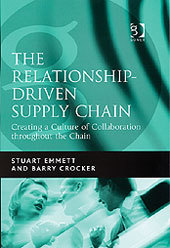Description
The Relationship-Driven Supply Chain
Creating a Culture of Collaboration throughout the Chain
Authors: Emmett Stuart, Crocker Barry
Language: English
Subjects for The Relationship-Driven Supply Chain:
Keywords
management; demand; chains; networks; lead; time; approach; effective; scm; competing; Supply Chain; West Germany; Common Language; UK Manufacturer; Supply Chain Approach; Adaptive Supply Chains; SLT; UK Environment; Lead Time; Supply Chain Networks; LTV; Company Culture; Cycle Time; Demand Driven Supply Chains; Supply Chain Relationships; LT; Cycle; Effective SCM; LT; Jar Manufacturer; Supply Chain Collaboration; Total Supply Chain; Supply Chain Players; USA; Inventory Holding; Responsive Supply Chains
Approximative price 164.74 €
Subject to availability at the publisher.
Add to cartPublication date: 04-2006
Support: Print on demand
Approximative price 61.25 €
In Print (Delivery period: 14 days).
Add to cartPublication date: 08-2018
· 17.4x24.6 cm · Paperback
Description
/li>Contents
/li>Biography
/li>

